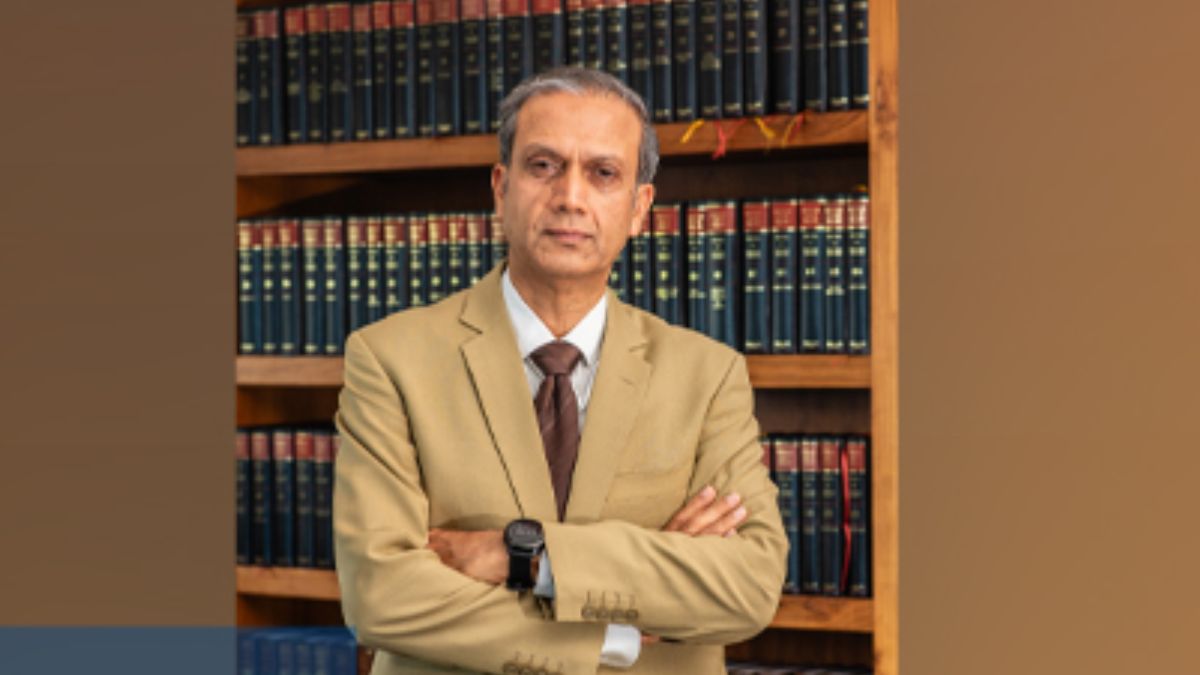Politics
Democracy: DPP Fights for Prosecution Independence

“The fundamental fabric of our democratic state, as outlined in section 1 of the Constitution, is that the administration of criminal justice, including the power and process of prosecution, must be isolated from political influence,” says Attorney Rashid Ahmine.
The Director of Public Prosecutions (DPP), Rashid Ahmine, has initiated a new legal battle by challenging the constitutionality of the Financial Crimes Commission (FCC) before the Supreme Court.
In his complaint, the DPP highlights that the 1968 Constitution grants the supreme prosecution authority independent powers in criminal prosecutions, keeping it away from political influence.
However, according to the DPP, the establishment of the FCC aims to usurp these constitutional powers in criminal prosecutions, which goes against the fundamental principles of democracy.
The DPP’s complaint questions the legality and fairness of the criminal process, emphasizing the importance of maintaining the independence of prosecution authority in the judicial system.
He asks the court to declare that the FCC violates articles 1 and 72 of the Constitution, and is therefore null and void, being adopted by a simple majority, and article 47(3) of the Constitution.
In his complaint, the DPP revisits the powers granted to him by the 1964 Constitution as the supreme prosecution authority.
In September 1965, the DPP highlights in his complaint, during the Constitutional Conference of Mauritius at Lancaster House, it was agreed that the DPP would have independent powers in criminal prosecutions, corresponding to those provided in the existing Constitution.
This provision, implemented in the 1968 Constitution, is still in force in Mauritius. The DPP is appointed by the Judicial and Legal Service Commission and enjoys a tenure security similar to that of a Supreme Court judge.
His powers in criminal prosecutions include instituting and conducting proceedings, taking over existing proceedings, and discontinuing proceedings at any time before judgment.
In 1998, the report of the “Presidential Commission on the examination and reporting of the structure and functioning of the judicial system and legal professions of Mauritius” (known as the Mackay Report) emphasized the importance of the independence of the DPP for the proper functioning of the state.
“The Plaintiff thus avers that a fundamental fabric to our democratic state under section 1 of the Constitution is that the administration of criminal justice, including the power and process of prosecution, be isolated from the sphere of political influence,” he highlights in the complaint.
The DPP emphasizes that the explanatory memorandum of the FCC bill clearly expresses the intention that the commission will be “the main agency in Mauritius for detecting, investigating, and prosecuting financial crimes and any other related offenses.”
Section 4(3) of the law states that: “The commission, in the exercise of its functions and powers, shall not be subject to the direction or control of any person or authority.”
The DPP asserts that the law as a whole, but also specifically through the operation of its section 4(3), aims to replace him as the supreme prosecution authority for specific offenses, thereby contravening articles 1 and 72 of the Constitution, as well as the establishment of the DPP as a fundamental component of the Mauritian democratic state.
Section 6(2)(b) of the law states that the commission must “cooperate, collaborate, and establish links with local, regional, and international institutions, agencies, organizations, or bodies in order to promote local, regional, and international cooperation in the fight against financial crimes.”
However, observes the DPP, the law is silent on the extent of cooperation, collaboration, or linkage the commission should have with him in the exercise of its legal judicial functions.
“The Plaintiff thus avers that in the light of the powers and role of the Prime Minister in the appointment of the Director General and the Commissioners, regarding the terms and conditions on which they are appointed, the Commission, the power and process of prosecution, in particular the power to prosecute or not, are rendered liable to political influence or considerations, in contravention of section 1 of the Constitution,” says the DPP.
Instituting criminal prosecutions. The DPP believes that the director of the FCC will have the power to conduct investigations and will not be required to submit investigation files to the DPP’s office if the commission decides not to pursue an investigation.
According to sections 58(8) and 142(1)(a) of the law, when it is found that the commission has initiated criminal proceedings, nothing should prevent the complainant, at any time, from resuming, continuing, or discontinuing such criminal proceedings, under articles 72(3)(b) and (c) of the Constitution and sections 142(1)(b) and (c) of the law which are the exclusive powers of the DPP.
However, emphasizes Ahmine in his complaint, in order to give effect to articles 72(3)(b) and (c) of the Constitution and sections 142(1)(b) and (c) of the law, he must have access to the full file, if requested, while nothing in the law obliges or restricts the commission from providing him with the complete file, rendering the exercise of his constitutional powers under article 72(3)(b) and (c) futile.
Unlike the commission, the Independent Commission against Corruption was, under section 46(7) of the Prevention of Corruption Act (PoCA), legally obligated to submit a full report to the DPP, who held the final decision following the outcome of the investigation and the initiation of criminal prosecutions.
The exercise of the DPP’s constitutional power to institute criminal proceedings was thus in no way affected. On the contrary, it was explicitly recognized and preserved. The FCC law, however, has no equivalent provision to section 47(6) of the PoCA.
“The prosecution of offenses under the Act are too serious to be entrusted to the Commission – led by political nominees – without consulting the DPP,” says Ahmine. The power to terminate investigations.
The DPP therefore asserts that the commission’s power to terminate an investigation is equivalent to a “No Further Action” – a final decision not to initiate criminal proceedings.
Whenever the commission decides to terminate an investigation, either under section 57(3)(b) or under section 58(8)(b) of the law, it will result in the following scenarios: the DPP would, unbeknownst to him, be deprived of the opportunity to exercise his power to institute criminal proceedings under article 72(3)(a) of the Constitution; he will be informed after the fact and will not be able to exercise his power to institute criminal proceedings against the alleged offender.
“The DPP’s constitutional power under section 72(3)(a) of the Constitution should take precedence over the commission’s ordinary power under section 142(1)(a) of the law, as the DPP has comprehensive supervisory power – especially since his office is the main prosecution authority and is institutionally shielded from political responsibility and control, thus ensuring his autonomy and independence,” says the DPP.
Combining offenses. Rashid Ahmine argues that the commission’s decision to combine offenses under section 150 of the law is drastic because once an offense combination agreement is reached between the commission and an alleged offender, the criminal process abruptly ends, meaning there can be no prosecution against that person and, therefore, no further recourse by the DPP.
This is because the offense combination agreement is final and conclusive. This, highlights the DPP, totally deprives him of his essential prosecution function, especially his exclusive power to terminate proceedings in accordance with article 72(3)(c) of the Constitution, and serves as a plea in favor of the alleged offender and prohibits the initiation of any criminal proceedings against him.
“The institution of a process under the control of a politically appointed Commission and its Director General, which is capable of ousting the Plaintiff’s right to prosecute or discontinue cases of corruption (including by politicians) where ‘he considers it desirable to do so’ is undemocratic and inconsistent with the scheme of the Constitution as a whole.”
The DPP argues that the combined effect of the contested subsections affects his interests under articles 72(3)(a), 72(3)(b), and 72(3)(c) of the Constitution, in a general way, distorting the criminal process envisaged by the Constitution.
Rashid Ahmine argues that the criminal process is intrinsically linked and cannot be easily altered. He argues that his ability to resume, continue, or terminate criminal proceedings cannot be inconsistently restricted.
Disregarding his prerogatives regarding the termination of investigations or the transaction of offenses by the commission hinders his ability to act under article 72(3)(a) of the Constitution, thus compromising the balance of the judicial process.
In addition, he believes that depriving him of his constitutional power at the beginning of the criminal process goes against the spirit of the Constitution, which aims to ensure a balanced and transparent judicial system.
“The founding fathers of our Constitution did not intend for the Plaintiff to be deprived of his overall constitutional control of the criminal process ab initio, under subsections (a) to (c), by allowing the legislator to blindly entrust the Commission with a parallel power under an ordinary enactment, whose effect is to supersede the Plaintiff’s inalienable constitutional power,” Me Ahmine concludes.
The DPP is represented by Senior Counsels Sanjay Bhuckory and Narghis Bundhun, by Sanjana Bhuckory, Amira Peeroo and Vimalen Reddi, and by lawyer Vijay Dwarka.
Source: l’Express











